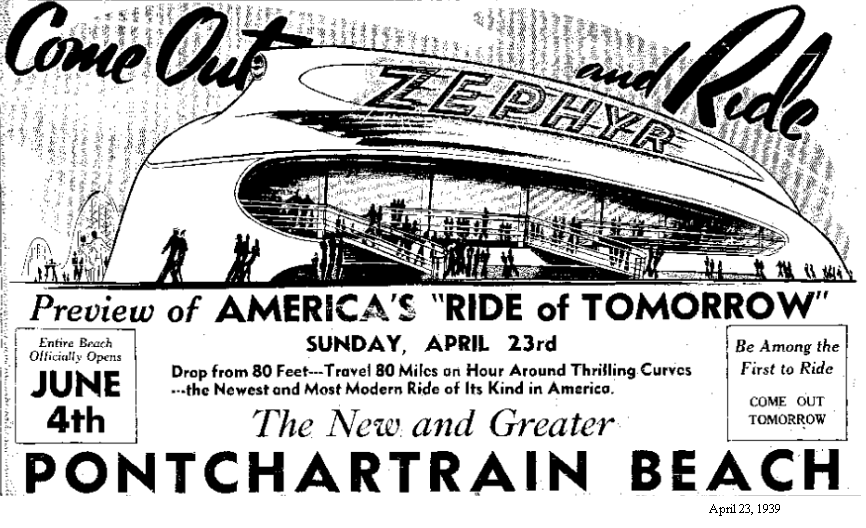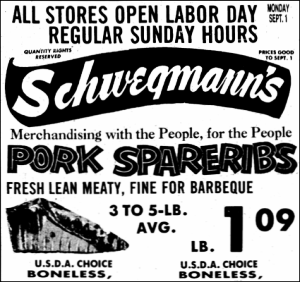|
Today in New Orleans History |
|
|
March 16


 Roppolo soon excelled at the clarinet, and played youthful jobs with his friends
Paul Mares and George Brunies for parades, parties, and at Milneburg on the shores of Lake Pontchartrain. In his teens Roppolo
decided to leave home to travel with the band of Bee Palmer, which soon became the nucleus for the New Orleans Rhythm Kings.
The Rhythm Kings became (along with King Oliver's band) one of the best regarded hot jazz bands in Chicago in the early 1920s.
Many considered Roppolo to be the star. His style influenced many younger Chicago musicians, most famously Benny Goodman.
Some critics have called Roppolo's work on the Rhythm Kings Gennett Records the first recorded jazz solos. After the
breakup of the Rhythm Kings in Chicago, Roppolo and Paul Mares headed east to try their luck on the New York City jazz scene.
Contemporary musicians recalled Roppolo making some recordings with Original Memphis Five and California Ramblers musicians
in New York in 1924. These sides were presumably unissued, or if issued unidentified. Roppolo and Mares then returned
home to New Orleans where they briefly reformed the Rhythm Kings and made some more recordings. After this Roppolo worked
with other New Orleans bands such as the Halfway House Orchestra, with which he recorded on saxophone. Leon Roppolo's compositions include the jazz standards
"Farewell Blues" and "Milenberg Joys", "Gold Leaf Strut" or "Golden Leaf Strut", "Tin
Roof Blues" (1923), and "Make Love to Me", which was a pop song using Leon Roppolo's music (from "Tin
Roof Blues"), recorded by Jo Stafford in 1954, and by Anne Murray and B. B. King. Jo Stafford's recording of "Make
Love to Me" was no. 1 for three weeks on the Billboard charts and no. 2 on Cashbox. (WIKI) The advertisement
is from the Sunday, April 15 1923 edition of the Times-Picayune.  

To receive an update for each day in New Orleans
history, join our facebook page
- Today in New Orleans History
|
|
|

To receive an update for each day in New Orleans history,
join our facebook page - Today in New
Orleans History.
Analytics |


